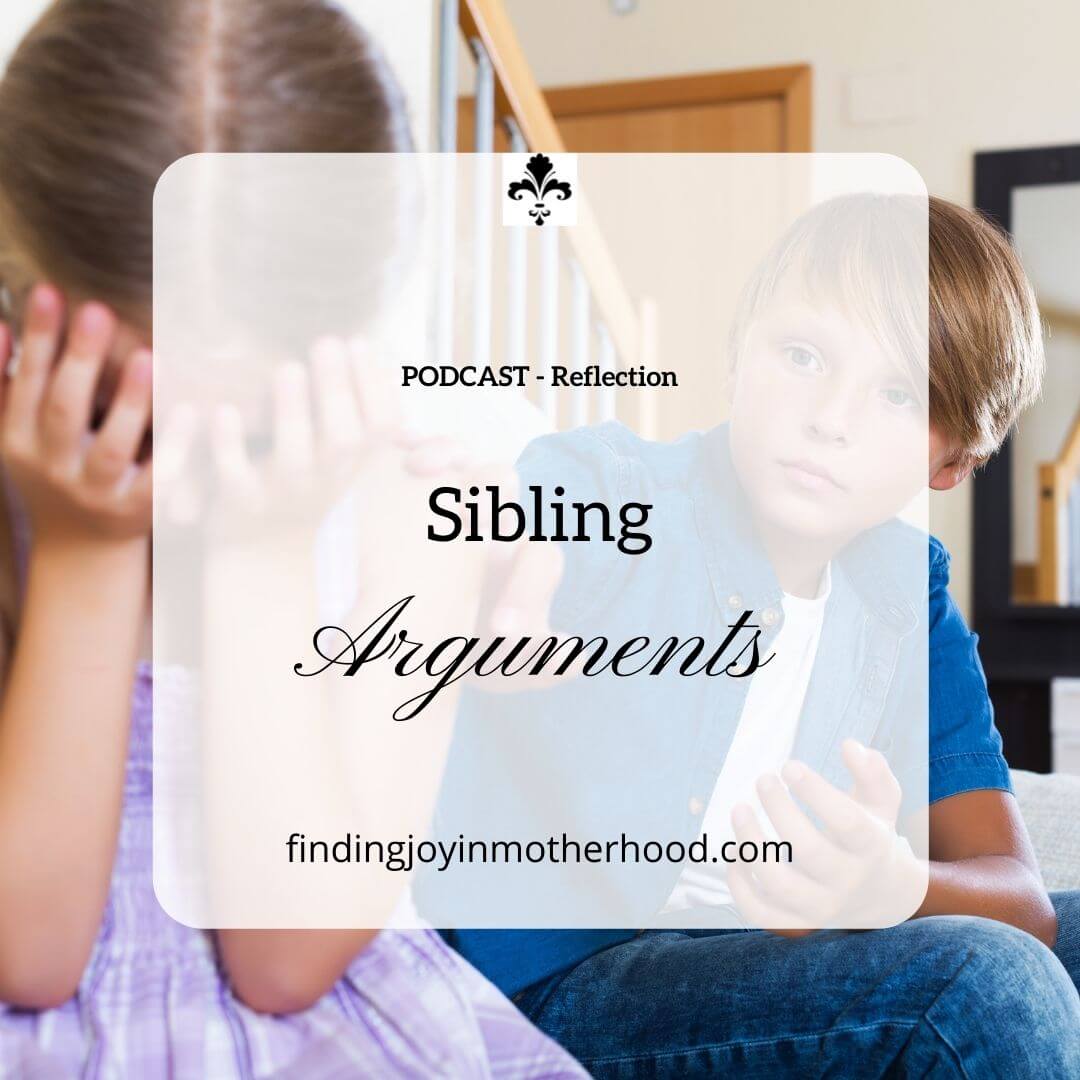What You’ll Hear:
I remember when I was a young mom, a friend of mine who also had a lot of children came to me to complain about how her children fought all the time.
She couldn’t believe how my children always seemed to get along so well.
She asked what we did, and I simply said, “There’s a zero tolerance in our family for disrespect.”
Period.
“You mean your kids never argue?”
The Difference Between Arguing and Fighting
I told her that there were many arguments, but they were all respectful arguments.
What she didn’t see, was how hard we worked to teach our children to get along.
Day in and day out, disrespect and unkindness was NEVER an option.
Were they still sometimes disrespectful and unkind to each other? Yes, they were imperfect children.
Create a High Bar for Behavior
But we had a high bar that most of the time they lived up to.
We taught the children that they were each other’s best friends – that friends in their life would come and go, but they would always be brothers and sisters and had to treat each other well.
And when there was conflict, we helped them see the other’s side of things, and taught them to work it out and let go of any resentments.
Name calling or making fun of another was never tolerated.
And if you said, “Shut up” to a sibling, it cost you $.25. It rarely happened.
We talked about how God’s plan made it so, and that they had an obligation to God to treat the brothers and sisters that He gave them well.
They would make mistakes (sometimes serious ones) in the way they treated each other – they were human. But we taught them to speak kindly and work it out, respecting the other’s opinion.
Teaching Empathy Helps Eliminate Fights
And we taught them empathy – to be sensitive to their sibling’s feelings, thoughts, and perspective.
I also think that it helped to be proactive – if I sensed a child was getting angry with another, I told both children to “go sit on the step and work it out.”
I would eavesdrop in the beginning just to make sure they were speaking to each other with respect and actively trying to work it out.
Each had the opportunity to say what they thought without interruption from the other.
Then they had to figure out where to go from there so that they were both satisfied.
Living With People Can Have Its Challenges
We also spent a lot of time teaching our children that when you live together with others, you’ll usually have to compromise on what you want – except when it was your birthday and then it seemed that everyone went out of their way to spoil you.
When their bottoms became too big for them to sit on the step together, I would step in and tell them to work it out in another room.
With the years on the step, they understood what that meant.
Whether you have young children, teenagers, or young adults, we can always help them be more empathetic to the other’s thoughts and feelings and continue to demand that they treat each other with respect.
Sometimes they just need a little reminding.
When you have zero tolerance for disrespect with consequences if necessary, you’re teaching them to think before they speak and act, and you’re creating thoughtful, empathetic adults.
Subscribe and Review
Thank you for reading and listening to “Finding Joy in Motherhood”!
One of the best ways you can show your support is to subscribe to the show and leave a review.
When you subscribe, new episodes are automatically downloaded to your phone which helps show Apple and other players the kind of content people want. It also helps you because you’ll never miss an episode!




No Comments